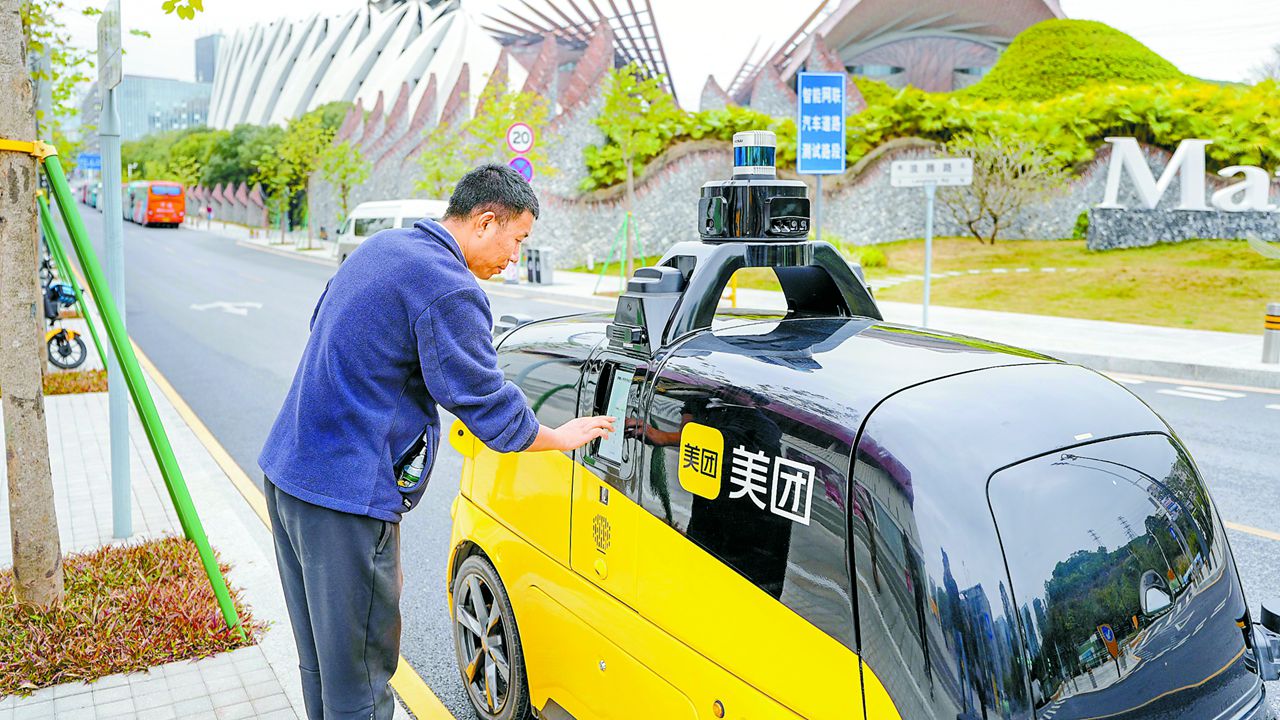Shenzhen unveils action plan to boost AI development
Writer: Liu Minxia | Editor: Nie Lumeng | From: Original | Updated: 2024-08-16
Video by Lin Jianping
Shenzhen unveiled an action plan yesterday to accelerate the development of next-generation AI technologies and seize opportunities presented by the evolving landscape of the AI sector.
Drawing upon its industrial strengths, Shenzhen will focus on key areas such as ecosystem innovation, intelligent products, application scenarios, and smart connected vehicles to establish itself as a vanguard in AI innovation.
One of the city's pivotal initiatives will establish of an intelligent computing center with 4,000 PFLOPS (peta floating point operations per second) of computing power this year. The plan also includes goals related to the innovation of core technologies, establishing a key AI research platform, and setting up an AI ecosystem innovation hub.
By leveraging Shenzhen's advantages in both hardware manufacturing and software development, the city plans to roll out a matrix of intelligently connected products, including a complete range of wearable products, in-vehicle devices and home devices.
The action plan also includes building an all-inclusive AI application system, which involves deploying AI into more than 40 public scenarios, empowering the industrial sector with AI, and promoting the use of AI in government services, entertainment, and education.
Moreover, the city aims to position itself as a national leader in smart driving by expanding the range of smart driving products, enhancing related infrastructure, and building an ecosystem that integrates human-vehicle-home application scenarios. The city plans to create a unified regulatory framework and open evaluation system for intelligent driving technologies.

A customer retrieves an order from Meituan’s autonomous delivery vehicle in Shenzhen. Cai Weize
“I am very happy to see that this action plan highlighted both innovation and application scenarios, as well as much-needed resources such as talent and funding. The government made very thoughtful considerations for AI companies," said Cui Li, chief development officer of ZTE Corp. "We can also see that the plan lists very detailed supportive measures and suggestions for some benchmark projects. I think it is very well considered, so I’m looking forward to seeing the future effect of the plan."
Zhang Qun, deputy director of the China Electronics Standardization Institute's information center, believes that the plan's emphasis on building a domestic AI ecosystem will be very important for future development of the sector.
"At this development stage, the AI sector still needs to undergo a trial-and-error process, and government guidance will play a significant role in the future development of the sector," said Ding Ning, executive deputy director of the Shenzhen Institute of Artificial Intelligence and Robotics for Society.
Shenzhen was home to 1,646 AI companies at the end of last year, ranking third among Chinese cities, official data show. The city’s core AI industry was valued at 38.7 billion yuan at the end of last year, a 12.1% increase from a year ago, according to the Shenzhen Artificial Intelligence Industry Association. Shenzhen-based entities filed for 6,080 AI-related patents last year, ranking the city at second among major Chinese cities, as per the association.
The China Artificial Intelligence City Competitiveness Ranking Research Report, released last month, ranked Shenzhen third among the 100 most competitive Chinese cities in AI development.
The city government and a number of districts in the city have rolled out a slew of regulations, plans, and measures to support the sector’s growth. In November 2022, Shenzhen was the first city in China to create a local regulation aimed at supporting AI development. The regulation encourages government agencies to be early adopters and enhance financial support for AI research in the city.